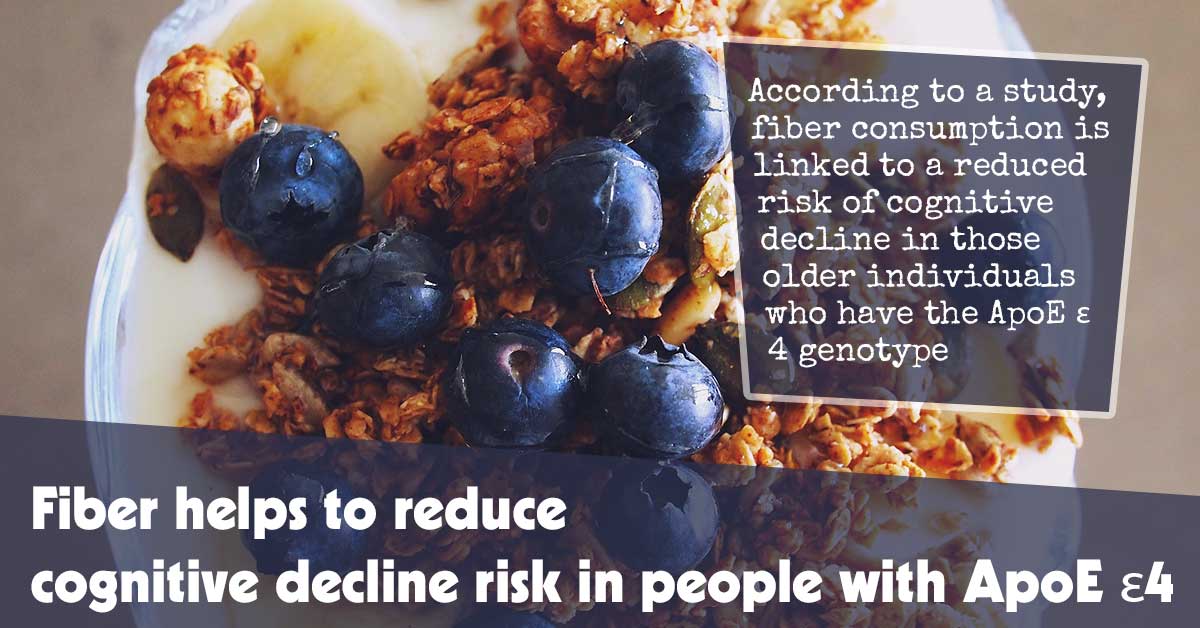According to a study, fiber consumption is linked to a reduced risk of cognitive decline in those older individuals who have the ApoE ε4 genotype, which is a genetic risk factor known to be associated with Alzheimer’s disease.1✅ JOURNAL REFERENCE
DOI: 10.1093/ageing/afac329
The study consisted of 848 individuals aged 74 on average whose cognitive state, diet as well as other health parameters were examined every 3 years, for 15 years.
ApoE is a multifunctional protein synthesized and secreted by a few cells such as adipocytes and hepatocytes. The ApoE gene, found in chromosome 19 in humans, is a polymorphic 1 and has 3 codominant alleles which result in different haplotypes or genetic variants.
Cognitive decline, a precursor of dementia in older individuals, is a public health issue with no treatment. It’s therefore important to identify modifiable risk factors which allow prevention strategy development, and the diet has proved to be 1 of the most effective.
Evidence has shown that healthy diets consisting of a high intake of foods rich in fiber have a positive effect on cognition, although the specific part that fiber consumption plays on cognitive function is still not known.
In individuals who have the ApoE ε4 haplotype, an increase of 5 grams a day in their fiber consumption is already linked to a 30% reduced cognitive decline risk. This demonstrates that a reasonable increase in daily fiber consumption can have an impact.
The researchers note that the protective association is limited to carriers of the ApoE ε4 haplotype. Regarding the individuals with other genetic Apolipoprotein E variants such as Apoe ε3 and ApoE ε2, a higher fiber consumption was not linked to a reduced cognitive decline risk.
These results reveal that older individuals with the ApoE ε4 haplotype can benefit from a higher fiber consumption.



